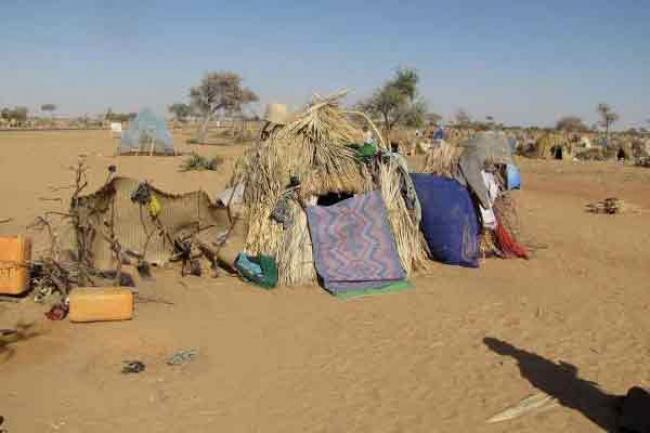Just Earth News 22 Jun 2016, 09:48 am Print

UNHCR/Boubacar Bamba
According to Viviane Van Steirteghem, representative of the UN Children’s Fund (UNICEF) in Niger, many have been settling along Route Nationale 01, the main road crossing the region.
After 3 June, the sites along that road had received an additional 60,000 to 70,000 people, resulting in increased pressure on water resources, she said. The newcomers, settling in three of the main sites, had arrived with their families and with their cattle. Those sites had initially been quite homogeneous in terms of linguistic groups and occupations of the inhabitants, but it was no longer the case. There are additional tensions now.
Van Steirteghem, who visited Diffa twice in the past 14 days, said UNICEF’s assistance focused on the coordination of the water response, initially water trucking, and now drilling, as people were expected to settle on the sites for quite some time.
In Bosso, women and children make up the majority at the displaced persons’ sites. There had been cases of measles reported, despite a massive vaccination campaign in December 2015. Since they lived in temporary housing, they were extremely vulnerable when the rainy season arrived, she said.
An increase in diarrheal diseases and respiratory tract diseases was feared, as well as cases of importation of cholera, for which preparedness was difficult to operationalize in the current conditions, she warned. Malaria was also a corollary of the rainy season, and with the Ministry of Health and the support of a number of non-governmental organization partners, UNICEF was planning a massive distribution of mosquito nets to help families protect themselves.
Women and children on the sites are highly vulnerable. Some children had come unaccompanied. Many of them had been traumatized. Protection services were being offered to allow children to express what they felt and relieve some of their stress. Women going to get water at night were very vulnerable to gender-based violence and UNICEF was preparing messaging to help them strategize and go in groups to avoid being targeted.
The school year had just finished and all the children would be able to take their examinations in the neighbouring town. UNICEF was preparing for the next school year, taking into account the increase in the number of children.
Van Steirteghem said that the appeal for the Diffa crisis was 25 per cent funded out of the required $74 million.
- India rejects allegations, urges Pakistan to tackle its ‘home-grown ills’
- Massacre in Islamabad: ISIS takes responsibility for deadly Pakistan blast
- Friday turns fatal: 31 dead, 169 injured in shocking Pakistan mosque blast
- Explosion at packed mosque in Pakistan turns Friday prayers into scene of carnage, 15 dead
- Security forces handicapped: Pakistan Defence Minister’s shock admission on Baloch violence





-1763561110.jpg)
